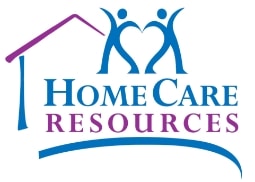
Food poisoning can be especially dangerous if your elderly loved one gets exposed to it by eating contaminated food. The immune system weakens as a person ages, making it more difficult for the body to fight off pathogens from food bacteria that can enter the body through contaminated food or food that hasn’t been prepared correctly. The key to keeping your loved one safe starts with in-home care and her grocery store trip.
How In-Home Care Providers Can Help Your Loved One Shop More Safely
Buying fresh produce and proteins is one of the best ways for your loved one to get essential nutrients and vitamins that will help her body stay strong and healthy. However, these foods might also harbor foodborne pathogens that could make your loved one ill. So, what can be done to keep your loved one safe while eating the best foods for her?
Here Are Five Areas Your Loved One’s In-Home Care Provider Will Help Navigate Shopping
#1 Produce
Examining produce is an important step in ensuring that it’s fit for consumption. Pick up each piece of fruit to check for mold, excessive bruising, or leaking. When buying containers of berries, it can be more difficult to see all of the berries crammed into the container, so it should be examined from all sides.
If your loved one enjoys bagged salads, checking the expiration date is important but it’s not a 100% fail-safe step. The contents should still be examined to make sure the items contained appear fresh and “dry.” Wet soggy leaves can mean it’s not safe to eat even if it’s well before the expiration date.
#2 Meat and Fish
Fresh meat can be a great resource for key nutrients like protein and iron but it needs to be treated with the greatest of care, especially to avoid cross-contamination. Cross-contamination occurs when the raw juices and blood of fresh meat get on food that won’t be cooked (such as salad items).
To be safe in the store, always place all fresh meat into its own plastic bag, even if it appears to be fully wrapped and leak-proof.
#3 Dairy
To keep dairy safe, make sure it is pasteurized. This also includes any freshly squeezed juice that may be for sale in the dairy section.
#4 Eggs
Fresh eggs should also be purchased from the refrigerated area of the store. If they are used sparingly in your loved one’s home, review the containers to find the one with the farthest out expiration date.
#5 Canned Goods
While most canned goods are perfectly safe, your loved one should look for ones that are undamaged and not bulging. A bulging can could mean contaminated food is contained within its walls.
Food Safety Continues at Home as Well
It can seem overwhelming to be so vigilant when trying to simply purchase food for the week. This is where an in-home care provider can help by accompanying your loved one to the store to help her find the best products for her money while also ensuring they are safe and fit for consumption.
Your in-home care provider will then also help your loved one get them home quickly and store them in their proper locations right away to retain their freshness and reduce the risk of any bacteria developing after the food gets home.
If you or an aging loved one are considering In-Home Care in Sun City, AZ, please contact the caring staff at Home Care Resources today. Call (602) 443-4700
Home Care Resources is a top provider of home care services in Phoenix, Tempe, Scottsdale, Glendale, Paradise Valley, Peoria, Sun City, Sun City West, Surprise, Goodyear, Cave Creek, Care Free, Fountain Hills, and surrounding areas.
- Six Warning Signs of Diabetes to Watch for in Seniors with Dementia - May 19, 2025
- Understanding Chronic Conditions in Seniors: The Importance of Support - May 9, 2025
- Helping Your Elderly Loved One Maintain Healthy Vision - April 24, 2025




